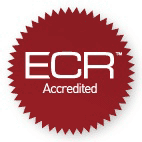Services: Assessments
Assessments
A variety of competency-based leadership assessments are available to be delivered by STEP and may be used depending on the needs and circumstances of the situation. Assessments provide objective information that can:
- Enhance self-awareness of one’s impact.
- Enhance awareness of others and their circumstances.
- Provide a benchmark for creating coaching goals and actionable strategies.
- Offer a method for evaluating progress using both internal and external metrics.
Leadership Assessments
Client Quotes
"Coaching has had a radical impact on me and on my business, which has seen a major increase in revenues over the same period."
Emotional Capital Inventory (ECi)
The Emotional Capital Inventory is a tool that may be used to cultivate a deeper understanding of the ‘internal metrics’ for a leader’s success. It provides a detailed report which identifies and describes your specific strengths and development opportunities, and provides a wealth of practical, easy-to-use strategies for building emotional intelligence and your key leadership skills.
The knowledge obtained from the report may be used to enhance capability across the following skill areas:
- Self Reliance
- Assertiveness
- Optimism
- Self-actualisation
- Self-confidence
- Relationship Skills
- Empathy
When combined with leadership coaching or other leadership development initiatives, the ECi can be powerful in developing change-agile, resilient and self-managing leaders.
For example:
- Are you a people person … somebody who is persuasive, outgoing, optimistic?
- Are you competitive, driving and results oriented?
- Are you relaxed, patient and predictable?
- Are you a systematic, orderly person who likes to have a lot of data before making a decision and wants things to be correct?
This can then be used to focus on optimising the leader’s areas of strength resulting in more successes.
Also, as self-awareness is enhanced, the leader can also identify the behavioural styles of others and learn to adapt accordingly.
Benefits:
- Improves self awareness
- Helps identify training needs
- Cost effective
- Available on-line
- Many applications including team building, personal development, recruitment.
TST:
TST provides a reliable, accurate and valid means of identifying how quickly a person can learn and retain new skills and procedures.
Academic achievement is not an effective measure of a person’s mental ability and potential. TST measures a person’s ability to learn and how they will respond to training programmes. It is applicable for all levels of people. TST is an ‘ability’ test, not an ‘intelligence’ test. It includes five timed tests: perceptual speed, reasoning, working memory, number speed and accuracy, and spatial visualisation.
TST can provide the answer to questions such as:
Can this person think on their feet?
Can they cope with the mental demands of the job?
Could this person be a high flyer?
Is this person a problem solver?
Benefits:
- May be used for succession planning
- Provides objective data for matching individuals with requirements of job
- Useful to use in recruitment
Benefits:
- Easy to use
- Provides short, simple snapshot of unique styles
- Provides a means of building rapport by flexing styles
- It can eliminate miscommunications
- Cost effective
360 Degree
360 degree feedback, sometimes referred to as multi-rater feedback, is a process where performance feedback is sought from a selection of an individual’s direct reports, peers and supervisors in critical areas of interpersonal effectiveness. The process can be used to gather information on categories for job success such as leadership, communication, problem solving and teamwork. The assessment reports on the skills, knowledge and style of the individual.
The individual’s self-assessment may then be compared with the 360 degree feedback in order to identify development opportunities for enhanced interpersonal and leadership effectiveness.
The ECR 360 is a tool that may be used in conjunction with a professionally trained coach or other professional for self-discovery and development. It may be used to enhance the leader’s capability across the following skill areas:
- Envisioning Success
- Engaging Commitment
- Energising Others
- Shifting Perspective
- Challenging Others
- Endorsing
- Self-Management
Harnessing Team Intelligence Scorecard
This tool is for those who support teams and who wish to:
- Measure a team’s performance against standards of excellence
- Audit a team to identify what’s working well and what’s missing
- Support a team to create a roadmap for improved results
- Support the team leader to lead the team without overusing authority
- Score early wins that can be translated into peak performance.
The scorecard allows you to analyse the gap between the team’s current capabilities and peak performance. Team leaders can quickly identify and fully leverage the team’s strengths while identifying opportunities for development.




